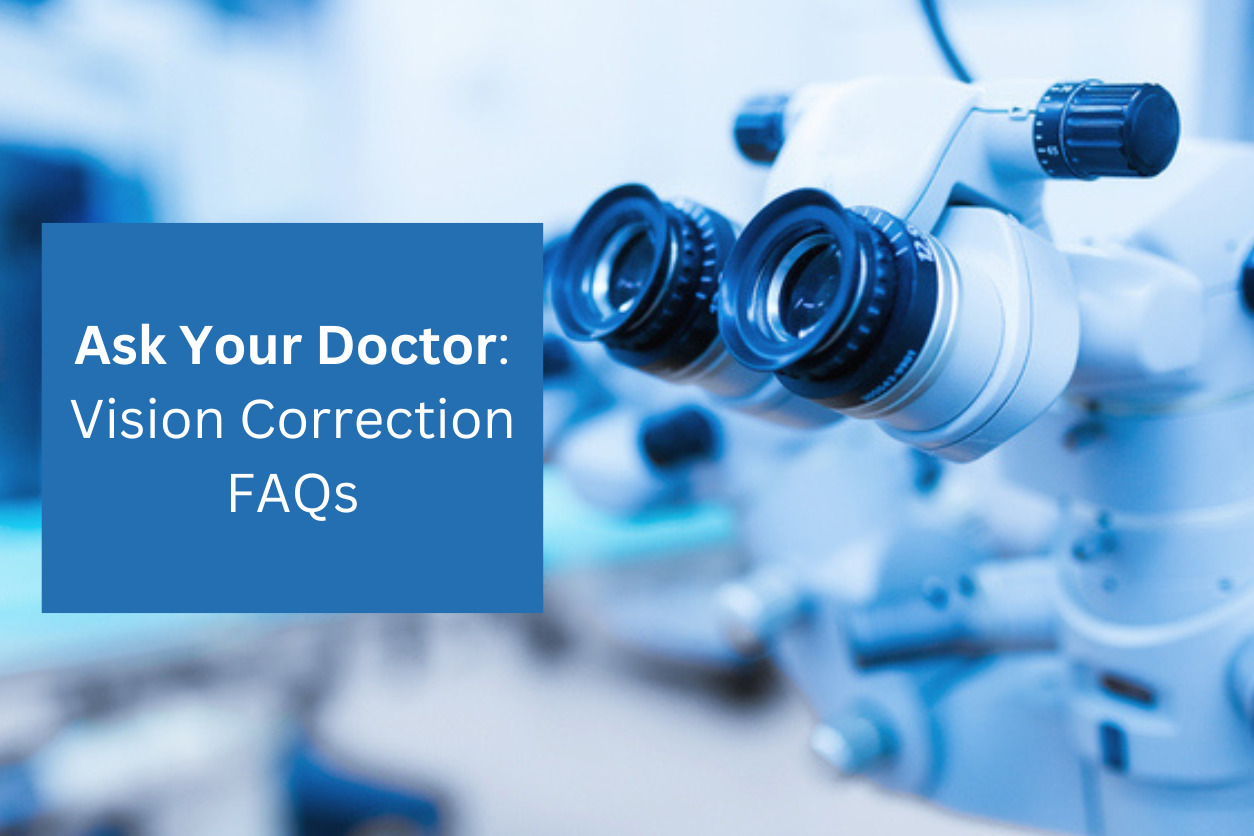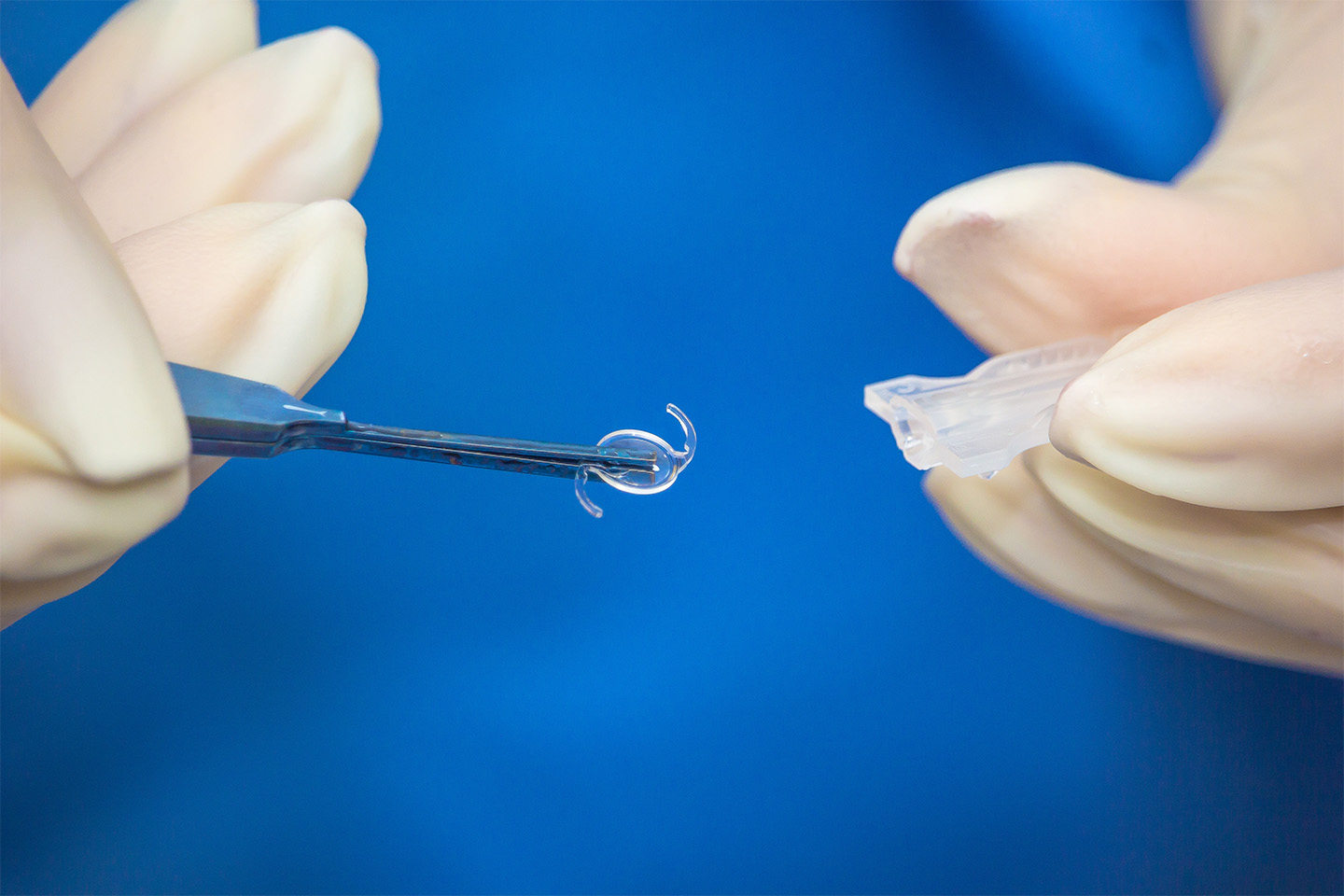Ask Your Doctor: Cataract Surgery FAQs

Before any procedure, you’ll likely have lots of questions about what to expect, recovery, post-op and more. Get answers to some of the most frequently asked questions about vision correction surgery with Kleiman Evangelista’s top surgeons to help you understand more about Cataract eye surgery.
Cataract FAQs
What is Cataract Surgery?
Cataract surgery is a minimally invasive, outpatient surgical procedure in which the cloudy cataract is removed from the eye, and it is replaced with a clear lens implant to restore visual clarity.
Does Medicare Cover Cataract Surgery?
Yes! Medicare and all commercial insurance plans cover cataract surgery because visually significant cataracts interfere with normal activities of daily living (such as driving, reading, and working).
What Are Cataracts?
Cataracts are when the natural crystalline lens in your eye becomes cloudy and opaque over time.
What Causes Cataracts?
Most often cataracts are age-related (everybody gets them eventually), but they can also be associated with systemic conditions such as diabetes, steroid use, medication side effects, and environmental conditions such as excessive UV sunlight exposure and smoking.
How Long Does Cataract Surgery Take?
Cataract surgery is a fairly quick procedure typically taking 10-15 minutes to complete.
How Long Does It Take to Recover from Cataract Surgery?
Most patients are able to see sharply and clearly within 1 week from cataract surgery. While the vision is slightly blurred the day after surgery, it continues to improve each and every day.
How Long After Cataract Surgery Can You Drive?
Patients are able to drive themselves when they feel comfortable with their vision after surgery. This is typically sometime within the first week after surgery.
How Much Does Cataract Surgery Cost?
The cost of cataract surgery varies based on patient’s unique insurance plans as well as if they choose advanced technology intraocular lenses which have an additional cost.
What is the First Sign of Cataracts?
The most common symptoms patients have that are related to cataracts are glare from oncoming headlights when driving at night, difficulty reading small print even with reading glasses, needing more light than before to see clearly, and not getting any vision improvement with a new pair of glasses.
Can Cataracts Come Back?
Thankfully cataracts do not come back! About 30% of patients will develop haze behind their lens implant (called posterior capsular opacification), but this only requires a minor laser procedure in the office if needed.
How Long is Cataract Surgery?
Cataract surgery is a fairly quick procedure typically taking 10-15 minutes to complete.
Is Cataract Surgery Painful?
Cataract surgery is not painful. Patients typically feel mild pressure and fluid on the eye, but that’s it!
What Do You See During Cataract Surgery?
Many patients have told me that they see an amazing light show when I am performing their cataract surgery!
Are Cataracts Hereditary?
If you live long enough, everyone will develop cataracts. However, some patients can develop cataracts very early (even when they are children) if there is a family history.
How Long Does Cataract Surgery Last?
The surgery and lens implant placed in the eye last for life! We do not need to replace the lens implant in the future.
Does Cataract Surgery Correct Vision?
Yes! The exciting part about cataract surgery today is that there are many different lens implant options to reduce the need for glasses for both distance and near. Coming up with a customized vision plan for each patient is what makes this so fun.
Can Cataracts Be Reversed?
At this point in time, there is no medical treatment available to reverse or prevent cataract formation. But it is certainly a hot topic in medical research.
What Are the Risks of Cataract Surgery?
While we are fortunate that cataract surgery has a very high success rate and low complication rate, it is not zero. There is about a 1% or less chance of infection, bleeding, problems with the retina, or need for more surgery.
What Are the Most Common Problems After Cataract Surgery?
The most common issue I see after cataract surgery is dry eye. This is typically temporary and requires frequent use of artificial tears for 1-2 months after surgery while the eye fully heals. Patient may also notice a black crescent in their peripheral vision (called negative dysphotopsia), but this almost always resolves at the 1-month mark.
What Are the Different Types of Cataract Surgery?
Cataract surgery can be performed two different ways. The traditional manual surgery is where the surgeon performs the entire surgery, and it is a very safe and effective procedure. The laser assisted cataract surgery is where a femtosecond laser is used to help make a circular capsulorhexis, fragment and break down the cataract, and make laser corneal relaxing incisions to help treat astigmatism. This typically results in sharper vision due to astigmatism correction, and a faster initial recovery after surgery.









